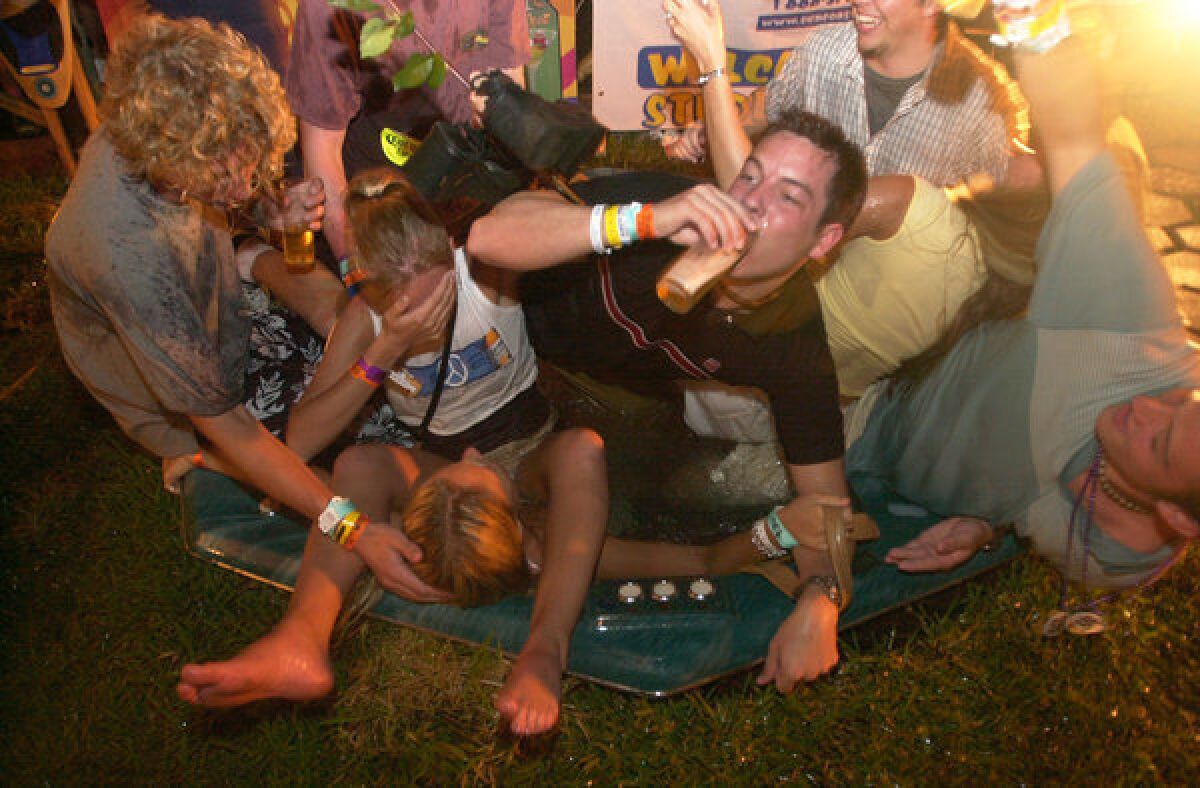You go out with your friends to have a good time; of course, there will be dancing, partying, and drinking. You’re on your third bottle when you start to feel a little bit different than your usual self. You know it’s because you’ve been drinking, but you’re just not sure if you’re tipsy, drunk, or buzzed. Well, what is the difference between the three? First, you have to know what your alcohol tolerance is to be able to say that you are “tipsy, drunk, or buzzed.”
Table of Contents
ToggleLevels of Alcohol Tolerance
The term tolerance generally means the ability or capacity to endure or tolerate continued exposure to a particular substance like alcohol, environmental conditions, drugs, antigens, etc., without showing great adverse reactions. In terms of alcohol tolerance, it is the ability to endure the effects of ethanol in the body without losing consciousness or control of your own body and mental faculties.
Some factors affect a person’s level of alcohol tolerance, and some of these are; gender, genetics, age of the individual, physical health, family history with alcohol and drinking, and the frequency and quantity of alcohol the individual consumes.
There are also different recognizable levels of alcohol tolerance in the scientific community which are as follows; Functional or being unaffected by drinking large amounts of alcohol; Environment-Dependent or being affected by the environment where they drink alcohol as sometimes one gets drunk and sometimes not.
The other two levels of alcohol tolerance are Acute tolerance, or getting drunk even with just one or a few shots of alcohol, and Metabolic tolerance, where genetics play a huge role in how one does not get seemingly drunk at all, even if one drinks plenty of alcohol. Each of the following influences how a person views himself, whether he or she is ‘tipsy,’ ‘drunk,’ or ‘buzzed.’
What if Feels Like To Be Tipsy vs. Drunk vs. Buzzed
Buzzed

With the different categories of alcohol tolerance, it is safe to say that the application of the words ‘tipsy,’ ‘drunk,’ and ‘buzzed’ can be used accordingly in consideration of the individual’s tolerance of alcohol. But for general knowledge, the ranking or arrangement of these words are as follows; ‘buzzed,’ ‘tipsy,’ and then ‘drunk.’
A person who has been drinking can say that he or she is ‘buzzed’ when they feel that slight buzz after they have started drinking alcohol. ‘Buzzed’ is used to denote the first phase or the beginnings of the effects of drinking alcohol. People with low alcohol tolerances are more likely to feel the buzz strongly even if they only have had just a few drinks. The term ‘buzzed’ is part of informal speech.
The original meaning of word was first used in aviation, which meant ‘to fly close or low’ It crossed boundaries into telecommunications and was used as ‘the ring off on the telephone’ according to its etymology. It has then transformed into informal slang that now refers to that ‘buzzing feeling’ that one feels when he or she drinks and has reached their point of tolerance early on, which can be observed in those who have acute tolerance of alcohol.
Tipsy

A drinker becomes ‘tipsy’ when the effects are far more than a simple buzz, or it can be said that ‘tipsy’ comes second to ‘buzzed.’ The word ‘tipsy’ originated from the phrase “tip over yet,” as the individual is no longer sober but not too intoxicated to “tip over yet.”
Being ‘tipsy’ is literally like the motion of tipping over or showing signs of instability in terms of balance. This particular jargon originated from the inferred meaning “slope or overturn” and from the verb ‘tipple’ which is an old-fashioned kind of verb that denotes the drinking of alcohol earlier, like one of the earlier usages of the word ‘tipsy’ in referring to a cake soaked in alcohol or ‘tipsy cake.’
It can be considered that being ‘tipsy’ is the middle ground of considering oneself when it comes to drinking alcohol. You can get ‘buzzed’ and then ‘tipsy’ afterward, but you can never be ‘buzzed’ and ‘tipsy’ at the same time; because you have to remember that these terms work in coordination with one’s alcohol tolerance and a form of hierarchy.
Although some might argue that they are ‘buzzed’ and ‘tipsy’ at the same time well, arguably they can claim it but if we analyze things further, they have been feeling ‘buzzed’ and continued to drink beyond their alcohol tolerance, thus ending up being more than just ‘buzzed,’ but now they are ‘tipsy.’
Drunk

The last of the three terms cannot be misplaced from the other two because it has a clear definition and use. Being ‘drunk’ is when a person has gone beyond the point of keeping himself or herself upright because of alcohol intoxication.
The natural presumption is that the word ‘drunk’ is the past participle of the verb ‘drink,’ which befits the connotative definition of ‘drunk’ as ‘having drunk any beverage but more particularly an alcoholic beverage’ as adapted during the mid-14th century.
An interesting fact is that even folktales from the medieval period have shown distinct differences in the stages or progressiveness of being drunk by associating them with some animals that may inadvertently represent men who are drunk, like the sheep, the lion, the ape, and the sow. As to why they associated drunk men with such animals, you can use your imagination to draw up a conclusion.
Of course, if one is in the phase of being actually ‘drunk,’ so many things can happen, whether planned, unplanned, intended, or unintended. Most cases of accidents and even crimes happen when one is intoxicated. The effects of dopamine when one is ‘drunk’ affect the efficacy of one making decisions for themselves in certain situations.
Conclusion
With that said, drinking Ethanol or Alcoholic beverages should still be done in moderation even if the person has a very high tolerance for alcohol because too much alcohol in the body all at once will lead to alcohol poisoning if not death. Responsible drinking saves not only an individual’s life but also those around them as more and more crimes are tagged with people under the influence of either illegal drugs or alcohol. Drink moderately and stay alive long enough to drink more in the long run.

I am a passionate beer connoisseur with a deep appreciation for the art and science of brewing. With years of experience tasting and evaluating various beers, I love to share my opinions and insights with others and I am always eager to engage in lively discussions about my favorite beverage.
















